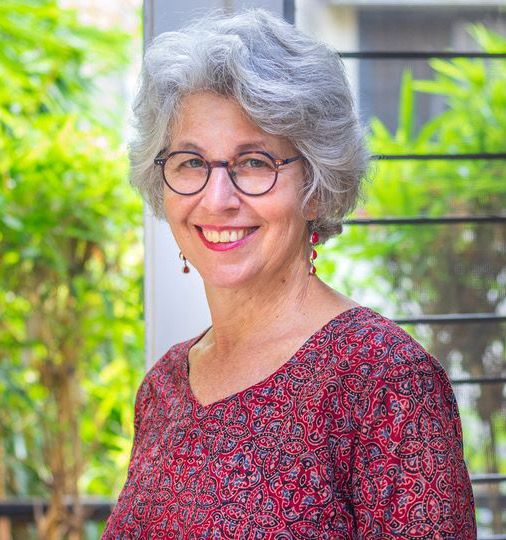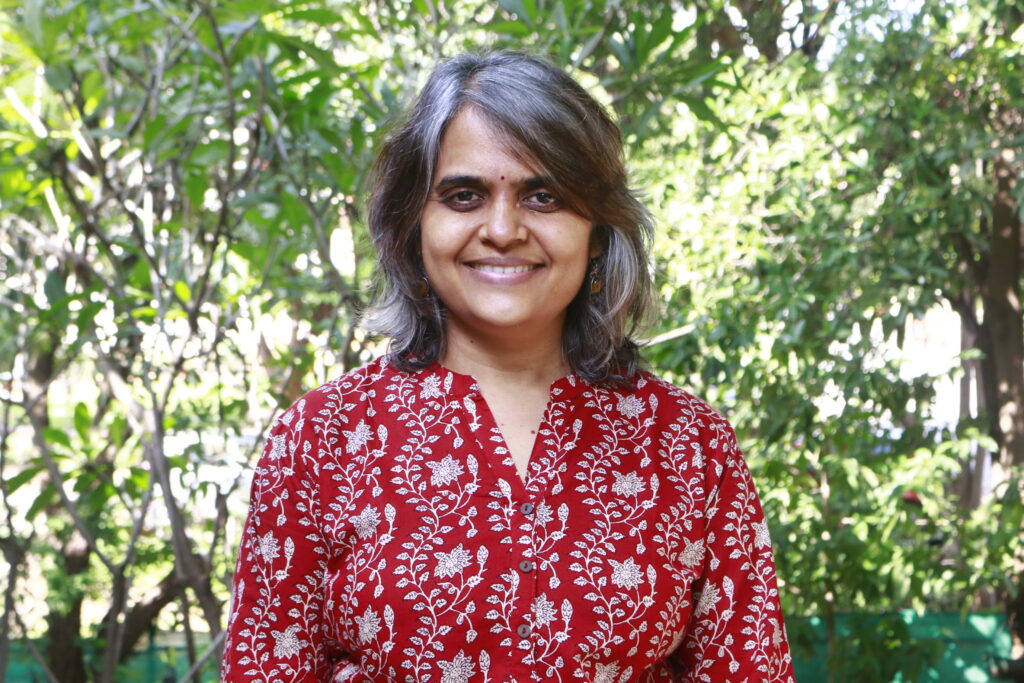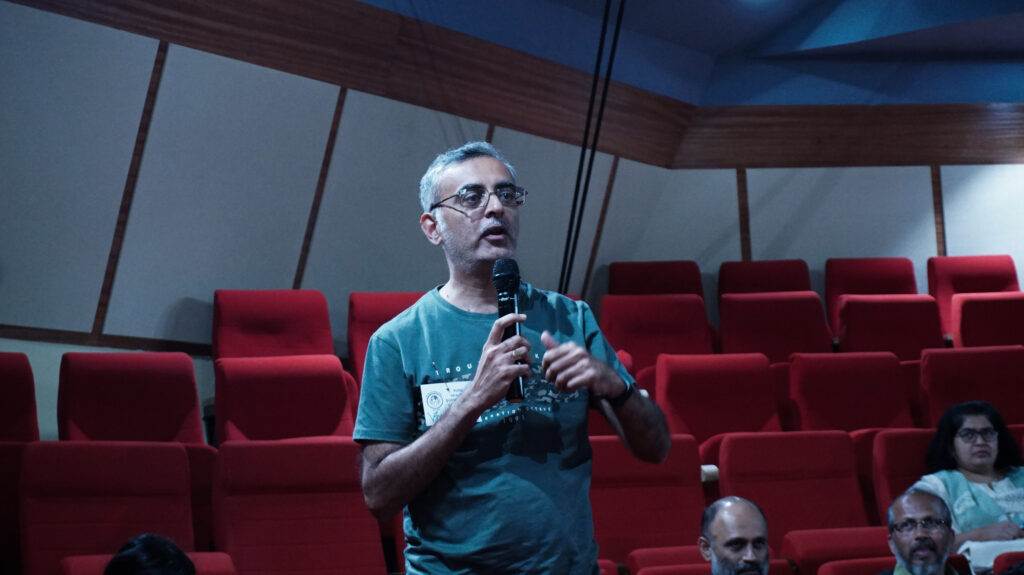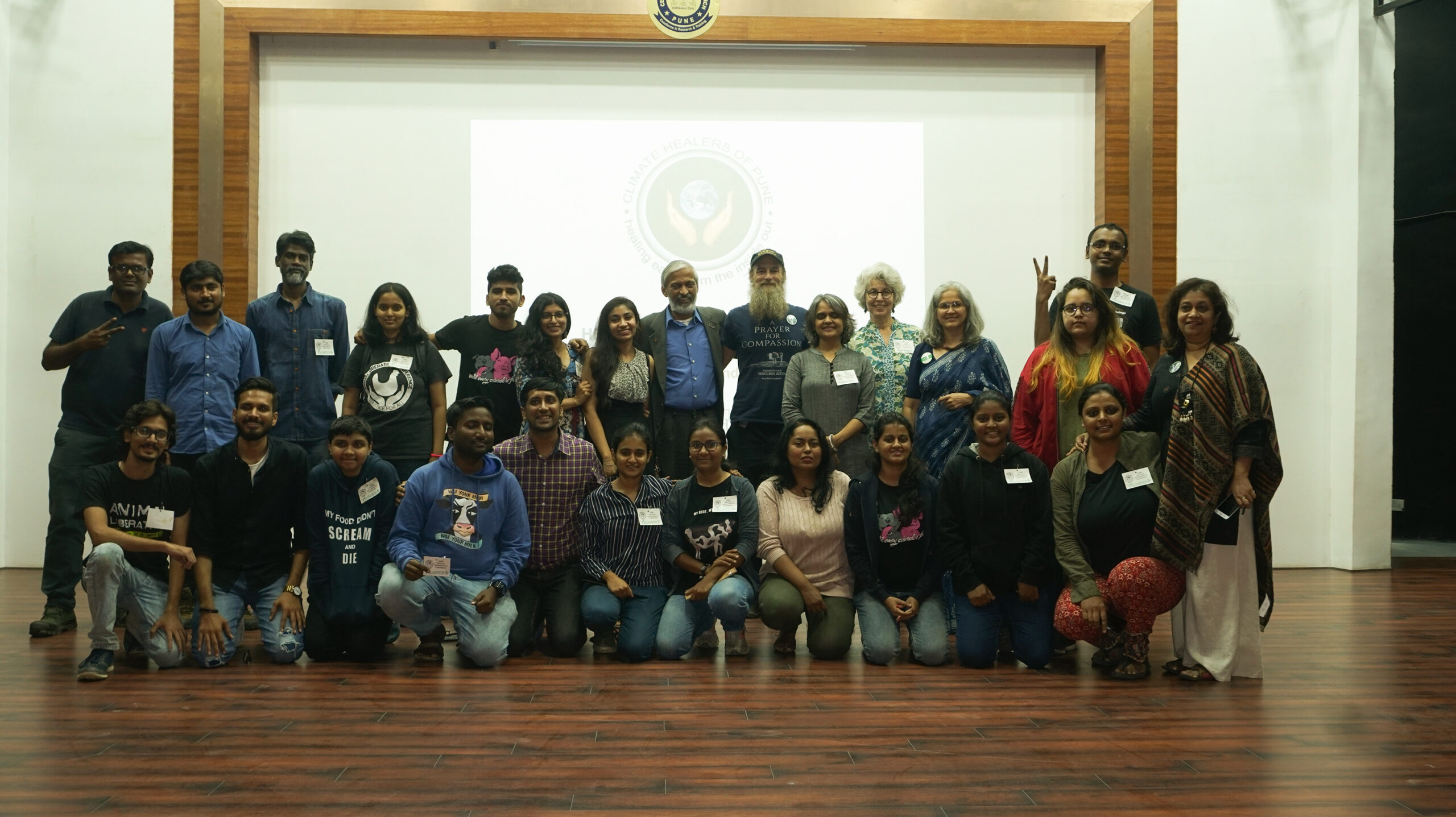Jeeva Bhavana (JB) began after the Pune Health and Sustainability Conference (PHSC) held in Pune (November 30th and December first, 2019) to illuminate the general population about the interconnectedness between the soundness of the planet and our individual, individual wellbeing. Explicitly addressing the evil impacts of Animal Agriculture (AA), with emphasis on India and its connection with the environment, JB is founded by Julie Wayne, Madhavi Kolte and Sanjeev Naik in January 2020. The mission of Jeeva Bhavana is to contemplate the harmful impacts of Animal Agriculture on the climate, wellbeing and economy in India. They have organised health camps, talks by plant-based health professionals, workshops and film screenings to educate the public about the health and environmental benefits of adopting a plant-based diet. In conversation with Vartika Prasad of The EarthView, Jeeva Bhavana founders shared their views. Here are the excerpts from that conversation.
Q. Your organisation is focused to fight against animal-based agriculture. Highlight some of your work in that area and also the environmental impacts on this kind of agriculture?
Julie/Madhavi/Sanjeev: Animal-based agricultural systems are completely unsustainable, not only environmentally but also economically. Currently, if these subsidies were removed, the entire agricultural system would collapse because farmers would never be able to sell their products at their “real” cost, meaning without subsidies. JB wants to change the current picture of disparity and environmental degradation to turn to equality and a thriving ecosystem. Aligned with this vision, we have been interacting with farmers and conducting surveys to understand current farming practices. We want to help them understand the holistic approach of plant-based farming and that keeping animals on the farmers is not just economically unsound but also that the same expenses invested in plant-based activities would reap them more overall (environmental, health and economics) benefits. Of all the human activities, AA has the worst and the most multidimensional negative impacts on the environment. It causes pollution of water, air and soil, desertification, soil erosion, land degradation, freshwater depletion, biodiversity and habitat loss, species extinction, acidification of the oceans, ocean dead-zones and the list goes on.



Q. Tell us some of the achievements or case studies of the organisation’s work? Please elaborate on the community work done by Jeeva Bhavana?
Julie/Madhavi/Sanjeev: In alignment with our mission, JB is set to embark on a research study in collaboration with a reputable environmental institution in Pune, Ecological Society. The study will look at land use in India and the productivity of our agricultural land. We will also analyse and compare the nutritional value, the land use and the production costs of two groups of foods (milk and crops), as well as the difference between crop residue and manure as soil nutrition not just how they enhance soil, but their negative effects as well (methane from manure, for example). Similarly, we have been working on possibilities of helping interested farmers to transition to natural, compassionate, plant-based farming practices. To this end, JB has launched an initiative in collaboration with another NGO, Punarbharan, based on specific guidelines created for farmers. Some of these guidelines are that there will be no breeding or milking of animals and no slaughter of any animal for consumption or any other purpose. Interestingly we have found small groups of farmers who fully agree with our philosophy and have expressed their willingness to join us. We are waiting to finish a few modalities to get started. JB has also been supporting in compliance with our principle of rewilding available land. It is an initiative by Devrai Foundation leads Mr Raghunath Dhole. Devrai Foundation has been donating free saplings of indigenous trees to interested people across the country. They are setting up Devrais on minimum 1 acre of land, planting fruit tree orchids, and creating dense forests in urban areas and peripheral areas where space for plantation is available as well as giving guidance to raise these forests free of cost.
Q- Unseasonal rainfall, erratic temperatures, natural disasters have shown that climate crises are becoming real. Your comments on the same and what can be done to mitigate it?
Julie/Madhavi/Sanjeev: We are living amid a climate emergency and we must take these signals very seriously. And though we have a concrete and easy to implement solution concluded by a study conducted by the University of Oxford in 2019, which prescribed a global shift to a plant-based diet to mitigate the climate crisis, there is still tremendous resistance – especially from environmental experts – to consider a lifestyle change by taking into account our food choices. Amongst all human consumption, our food consumption habits have the worst impact on the planet. Even the UN FAO’s most conservative estimates show that emissions by AA are higher than all transportation combined. Yet nearly all environmentalists still point a finger at fossil fuels only and neglect the role of our penchant for eating animal products. Hence knowing the multi-faceted impacts of AA, JB recommends adopting a plant-based diet as the first and most effective step at an individual level to not just mitigate but also potentially reverse climate change. A major decline in AA will free up a tremendous amount of land, allowing us to grow food forests and let huge tracts of land rejuvenate without the intervention of the human hand (rewilding).
Q- The recent pandemic coronavirus that is a zoonotic disease is one of the worst crises ever seen by mankind. What do you feel about how nature degradation and lack of sensitivity towards the environment has contributed towards it?
Julie/Madhavi/Sanjeev: Yes, the pandemic is a result of our complete disregard for nature and our fellow animal species. A zoonotic disease is when a virus “jumps over” from wild and domesticated animals to humans, nearly always because we have disregarded “species distancing.” This can happen when we interfere with their habitat by destroying it for industrial projects or by clearing forests for agriculture (either grazing or growing crops), as well as when we consume wild or domesticated animals as food. We are the only species, which infringes on other species, not for our needs but our greed. Unfortunately, the worst is still not over because currently there are many governments approved projects in India, which are creating the perfect storm for future pandemics by systematically granting permission to clear forests for industries and also by supporting animal-based industries to scale up their establishments, which are, in fact, breeding grounds for these pandemics.
Q- Your organisation also promotes urban gardening, organic farming etc. How do these practices help in the conservation of the environment?
Julie/Madhavi/Sanjeev: The current animal-based agricultural system is not only draining our natural resources but is also an inefficient converter of food; because to rear even a single animal on the farm we must feed them with adequate food and water. For example, A Gir cow weighing 350 kgs needs approximately 35 kgs of fodder and at least 120 litres of water daily. And the feed conversion ratio is just around 1% of calories and 4% of proteins against the total feed given to the cow.
We promote urban gardening because growing your food in your backyard is the most efficient and sustainable food system. When we grow food ourselves not only do we tend to grow just enough to meet our needs, which means we produce very little waste. Urban gardening saves transportation costs and emissions. Growing one’s food is therapeutic for one’s health, and the greening of our cities is net-positive for the urban environment. In our endeavour to eliminate animal-based farming, we have taken a step beyond organic farming. JB recommends veganic farming practices where no animal-based fertilizers and pesticides are applied to the soil or the crops. Numerous studies have shown that green manure available on the farms in the form of crop residues is sufficient to maintain soil fertility. This is also a very cost-effective practice. Veganic farming reduces manual Labour and improves the ecosystem on the farm. Most importantly, we align our practices with our principle of justice for animals as their exploitation and commodification are eliminated.
Q. What are things you suggest to the masses for a sustainable life for environmental conservation?
Julie/Madhavi/Sanjeev: Our entire lifestyle today is unsustainable and needs a complete overhaul to align with the laws of nature. First of all, we must understand that we are not separate from nature, but a part of her! So whatever we do must align with the rest of nature. Every natural element disturbed to fulfil our consumption habits implies a step in the direction of our destruction. When we buy a commodity like a car or a mobile phone we don’t get them out of thin air but we are extracting natural resources, which can be extracted only after destroying the ecosystem of the place from where these resources come. And of all the human consumption habits our food habits have the most destructive impact on the environment, both in magnitude and scale. But at the same time, this habit has the potential for making the quickest and most positive impact on the planet when we make the shift to a plant-based diet. And of all our consumption habits, this one can be implemented as soon as our next meal. Let’s face it: it is practically impossible for us to give up our cars or the use of an air-conditioner, cell phone or computer immediately, but changing our diet can be done this very day quite easily by just finding plant-based alternatives for or eliminating a few things. We tend to feel the benefits immediately, beginning with our health and a sort of lightness that comes with doing the right thing for ourselves, the other animals with whom we share this planet, and the planet itself. It’s tremendously empowering, and even more so today, in our grief-stricken world.
Q- Your message for our readers?
Julie/Madhavi/Sanjeev: We are in the midst of a climate emergency beyond anything we have ever faced before. We must take it very seriously…even for those in doubt, it is always preferable to “err” on the side of caution. Climate change is happening right now: we can see it happening with the yearly floods and droughts that are getting more and more frequent and more and more intense. If we don’t act now, our children will have no future or a future filled with hardship, wars, hunger and displacement. This is a realistic and not a pessimistic prognosis! We are stating this not to create fear and helplessness, but to motivate people with a call to action: we do have the power to change this dire scenario but we must take it seriously and act upon it.
As a society, we should always try to be a part of the solution rather than the problem. If society lives more consciously, we can make huge leaps, but society is merely an amalgam of individuals. To begin with the easiest and most effective step you can take by shifting to a plant-based diet. And then, in terms of practical advice, make an effort to consume less, reduce your plastic waste, reduce your air travel, conserve energy and water and reconnect with nature at every occasion possible to remind yourself of its beauty…and its fragility. And finally, let’s all shift our focus from the things that we have to the love that we create and the compassion that we display. That, in itself, is the real game-changer.

